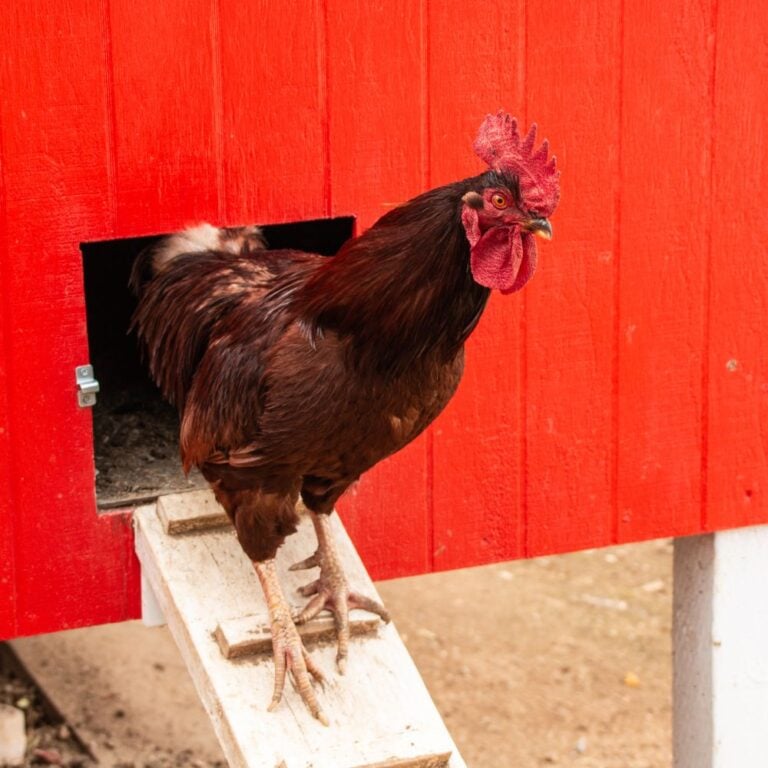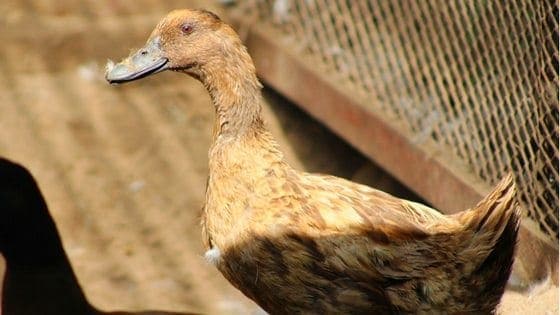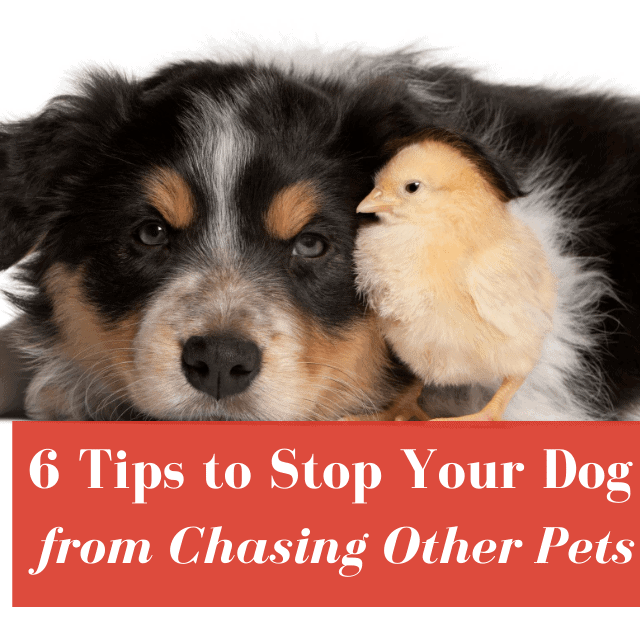Eye worms and mites are nasty parasites chickens can get, and they’ll totally gross you out.
They can be dangerous to your chicken’s health, so in this podcast, we talk about them as well as how to safely get rid of them.
But those aren’t the only questions you guys had this week!
We also talk about putting chicks outdoors, greek yogurt, and grocery store eggs.
You’ll learn:
- What eye worms are and how to avoid them
- How (and when) to let chicks get used to the great outdoors safely
- Why mites will kill egg production, and natural, non-toxic ways to say goodbye to them
- Whether grocery store eggs are fertile
- How to safely feed Greek yogurt to your flock
Links we discuss:
Medications your vet can administer for eye worms
Transcript
Hi there, and welcome to session 28 of What the Cluck?!, a podcast devoted to keeping chickens for fun and self-sufficiency. I’m Maat from FrugalChicken, and today is the day that I take your questions.
Now this week, we have a diverse amount of questions, but the thing they’re all common questions that I’ve had listeners ask. I think you’ll be blown away by some of the interesting information you’ll learn today.
A million thanks to everyone who submitted, and due to time limitations, I can only take 5 questions, but if your question isn’t answered today, rest assured I’ve taken note, and will try to answer them in next Tuesday’s episode.
Just as a reminder, if you would like to submit a question, you can shoot me an email at editor@thefrugalchicken.com or contact me over social media. You can find me on Facebook at TheFrugalChicken.com/Facebook.
When can I put chicks outside?
There’s a few considerations to make here, such as the age of your chickens and the temperature outside. You should also consider whether predators are an issue in your area, as well as whether you use something like a chicken tractor.
The best advice is to permanently put your chickens outside when they are fully feathered and better able to withstand the elements.
Feathers provide insulation from extreme heat and cold, and in the summer, they keep your chickens cool, and in the winter, they provide warmth by fluffing up and retaining heat.
Until chickens have feathers, they don’t have any ability to regulate their body temperature – that’s why you need to give them a heat lamp from the time they are born until they’re able to stand the ambient temperature in your house or barn.
Now, that being said, there’s a couple other considerations.
Chickens are fully feathered at around 12 weeks, and personally, I would not throw 12 week old chickens outside in 32 degree weather without some sort of period to get them used to the cold, especially if they’re used to living inside or under a heat lamp.
I would allow them to go outside during the day, then bring them in at night until they seem like they’re doing well.
Similarly, I would take caution on wet, cold days, and I’ve learned the hard way that young chickens don’t always weather those days so well.
You should also remember that young chickens are easy targets for predators, especially bantams because they’re so tiny.
If your area has a lot of predators, consider a chicken tractor instead of free ranging, and take special care at night to make sure they’re secure in their coop.
A lot of times, young pullets and roosters don’t start roosting until they’re well into 16 weeks old. Until then, in my experience, they prefer to sit on the ground, in large groups.
This makes them a really easy target for predators. Sometimes, putting them with older chickens, who will roost and will show the young ones what to do, is a good idea.
Now, during hot weather, you can put unfeathered chicks outside. After all, before we started raising chickens indoors, they were all born outdoors.
Using a chicken tractor is best to protect them from predators as well as getting lost or stuck in something, I have had that happen even when they were protected, so it is a cause for concern.
Personally, I would wait until a hot day, at least 85 degrees or so, before putting them outside. Make sure they have shade or a way to get out of the sun, and plenty of water and feed.
Until chickens are 12 weeks old, you want them to have free access to feed, and outside is no exception.
Putting young chicks outside is not necessarily a bad thing. They’ll get exposed to dirt, and build up immunities, and generally enjoy being a chicken.
You will have to provide chick grit to help them grind up anything they eat outside, and consider a probiotic to help them establish good gut flora in case they pick up any parasites or bacteria that might cause an issue.
What is an eye worm
Eye worms are a type of roundworm.
You find eye worms in the eye, hence their common name, and, according to the University of Florida, you’ll find them under the nictitating (nict-tit-tate-ing) membrane of the eye, and in the naso-lachrymal (lak-ruh-muhl) duct, which is their tear duct.
So, just for clarification, the nictitating membrane of the eye is the third eye lid that chickens have, and it helps them protect the eye and keep stuff out of it, like dust, dander, dirt, etc.
If you want to see the third eye lid in your chickens, a good time for that is when they’re dust bathing.
According to the Merck Veterinary Manual, eye worms are more of a problem in tropical and subtropical climates, and the host animal is actually cockroaches.
So, symptoms of eye worm include scratching of the eyes, and in extreme cases, blindness. It also can cause inflammation and tearing, and you might find your chicken has a lot of inflammation, for example, their eye might look like it is bulging.
So the way your chicken picks up eye worms is interesting.
The eggs are laid in the eye, then make it to the the pharynx by the tear duct, there’s a fancy scientific name for that, but we’ll keep things simple here.
The eggs then are swallowed, and eventually passed in the feces. They then have to be ingested by the Surinam cockroach, which incubates the eggs until larvae hatch, and become something that can infect your chicken
When your chicken eats the infected cockroach, the larvae then migrate up your chicken’s esophagus to the mouth and then through the nasolacrimal duct to the eye, where they then lay eggs, and the cycle continues.
There are other insect species that can host the eye worm, such as beetles, grasshoppers, and also earthworms, but cockroaches are the biggest hosts.
According to the University of Florida, the time it takes to complete the cycle can be a few days or up to several weeks.
To treat eye worms, the Merck Veterinary Manual suggests using a local anaesthetic and removing the worms manually. The worms are then exposed by lifting the third eye lid, and removed.
There’s also medication your vet can administer, and I’ll put a link to the Merck Veterinary Manual in this episodes show notes that you can refer to.
To prevent eye worms, which are a species of round worms, your best bet is to keep your chicken’s coop clean and free of moist environments, feces, urine, etc.
How do I get rid of mites?
So, there’s a lot of different species of mites that can infect your chickens, but the ones we’re talking about here are red mites, which are a common problem with backyard chickens.
If you see tiny red or black spots on your chickens on their vents or around there ears, then they have mites.
They particularly like to huddle around a chickens vent, and like tiny vampires, they like to bite and suck your chickens blood.
According to the Merck Veterinary Manual, these mites can live up to 7 days, but can lay hundreds of thousands of eggs in those 7 days, so this has the potential to be a real problem with your flock.
Although they only live 7 days, they can infect your house for up to 6 months, although their ability to proliferate is slowed down in the winter.
Chickens get mites from other chickens, but people can also bring them into the coop if you’ve walked in an infected area. The mites can also live on inanimate objects and jump onto your hens.
The mites like to hide in cracks during the day and hop onto hens at night because they’re nocturnal, and like to eat at night.
If they’re not treated, then they can prevent your rooster from wanting to mate, and kill egg production in your hens. In extreme cases, it can make young chickens lose weight, and cause anemia and death.
There’s chemicals you can use to treat your flock, but today, we’ll talk about natural solutions. Diatomaceous earth has been proven to be useful in treating external parasites.
You can carefully apply diatomaceous earth to your hens, or allow them to dust bathe in it. If you apply it yourself, be careful to not do too much at once, since diatomaceous earth, if inhaled, can cause problems with their respiratory systems.
If you handle your hens to treat them, be sure to wash yourself and your clothes in hot water, and scrub your shoes in a bleach or citrus vinegar solution, to kill any mites that might be on your person.
Power wash your coop using water which can contain soap. Another alternative is to power wash with water mixed with a citrus vinegar solution.
Citrus soaked in vinegar makes an extremely powerful solution, and I can tell you from experience it is an excellent cleaner that will wipe out a lot of nasty pathogens.
To make it, all you do is grab a quart mason jar, place some orange peels in it, then pour in white vinegar.
You want to use white vinegar for this, not apple cider vinegar.
Allow it to mix for a week before using. When you spray this in your coop, make sure your chickens aren’t in it because the essential oils might overwhelm them. Let it air dry for a few hours before putting them back in it.
Are eggs in the grocery store fertile?
So, the answer to this question depends on some conditions. Generally speaking, the eggs you buy at the grocery store are not fertile.
Largely, these eggs come from industrial egg farms that don’t have roosters because they have no economic value.
While the eggs themselves are not examined for fertility, they are examined for things like blood spots, lack of yolk, and other irregularities, so the chances of getting an egg that has developed into an embryo are very small.
Without cracking open the egg, it’s impossible to tell if they’re fertile or not, although they are developing machinery that can tell us just that. But the bottom line is large egg farms generally do not have roosters, which are necessary to have fertile eggs.
Now, I do know of smaller stores that carry eggs from local farms that do have roosters in their flock.
In this case, it’s entirely possible you will end up with a fertile egg, and unless the seller examines each egg individually or the eggs are collected daily, then you might end up with a developed embryo.
Chances are slim, but still there since a rooster is involved.
Now, the question you might be wondering is whether you can incubate grocery store eggs, and the answer is no. If the egg has not been fertilized by a rooster, then the egg will never develop an embryo.
But let’s say you buy eggs from the grocery store that came from a local farm.
In all likelihood, those eggs won’t hatch either, and that’s because the eggs have been kept in a cold enough temperature that the possibility of the embryo developing after warming up is pretty slim.
I’m not going to say its impossible because it’s not, but it’s very unlikely, and you’ll do better to buy guaranteed fertile eggs from a local chicken owner.
Would it be alright to give my hens Greek yogurt?
For the most part, giving chickens yogurt is perfectly fine, but there are some things to watch out for. Yogurt that is just milk, enzymes, and live cultures is best, and you should always stick to unflavored yogurt.
Other yogurts out there contain chemicals and other questionable ingredients that you don’t want your chickens eating, and if you don’t want to eat them yourself, then you don’t want your chickens eating it either.
While many mass produced products claim to have “natural flavoring” that does not mean something unsavory was added to give it flavor. For example, some natural flavoring derived from beaver anal glands, and personally, I don’t want to eat that.
In addition, some yogurts also have preservatives in them that might not be healthy for your hens, and might even harm them.
Studies show that a hen’s diet directly effects the quality of her eggs, so sticking with organic yogurt with simple ingredients is best.
You will know if the yogurt contains live cultures by looking at the label, and this is the most beneficial part of yogurt for your chicken.
Studies show that the beneficial bacteria in fermented products, which is what yogurt is, helps create a healthy digestive system for chickens.
In studies, hens fed fermented feed laid better, and their eggs were also larger. Their plumage looked healthier, and they were all around just healthier birds.
The best yogurt to give your hens is homemade yogurt, because you know exactly what they’re getting. However, if you don’t want to make your own, then giving them organic yogurt with only simple ingredients is best.
So, that’s this week’s podcast, and I hope it gives you some idea of how to successfully get started with chicks.
Now, if you’re interested in learning how to raise baby chicks and want some extra help, I actually have a book available on Amazon which can help you get started.
The book is called Chickens: Naturally Raising A Sustainable Flock, and if you’re interested in raising chickens naturally, then this book is for you.
It’s a 50 page ebook all about how to naturally raise a sustainable flock of chickens. You can check it out at TheFrugalChicken.com/chickenbook.
Thanks for listening to this episode of What The Cluck?! and I’ll see you next time!
I’d like to hear from you!
Have you ever experienced eye worms or mites? Leave a comment below!
Maat van Uitert is a backyard chicken and sustainable living expert. She is also the author of Chickens: Naturally Raising A Sustainable Flock, which was a best seller in it’s Amazon category. Maat has been featured on NBC, CBS, AOL Finance, Community Chickens, the Huffington Post, Chickens magazine, Backyard Poultry, and Countryside Magazine. She lives on her farm in Southeast Missouri with her husband, two children, and about a million chickens and ducks. You can follow Maat on Facebook here and Instagram here.





![Is My Hen Laying Eggs Yet?! Decoding Her Tell-Tale Signs (Plus Ideas To Use & Preserve Eggs) [Podcast]](https://thefrugalchicken.com/wp-content/uploads/2016/03/how-to-tell-if-my-hens-are-laying-feature-min.jpg)
![How to Raise Baby Chicks So They’re Healthy From Day 1 [Podcast]](https://thefrugalchicken.com/wp-content/uploads/2016/02/how-to-raise-baby-chicks-feature-min.jpg)